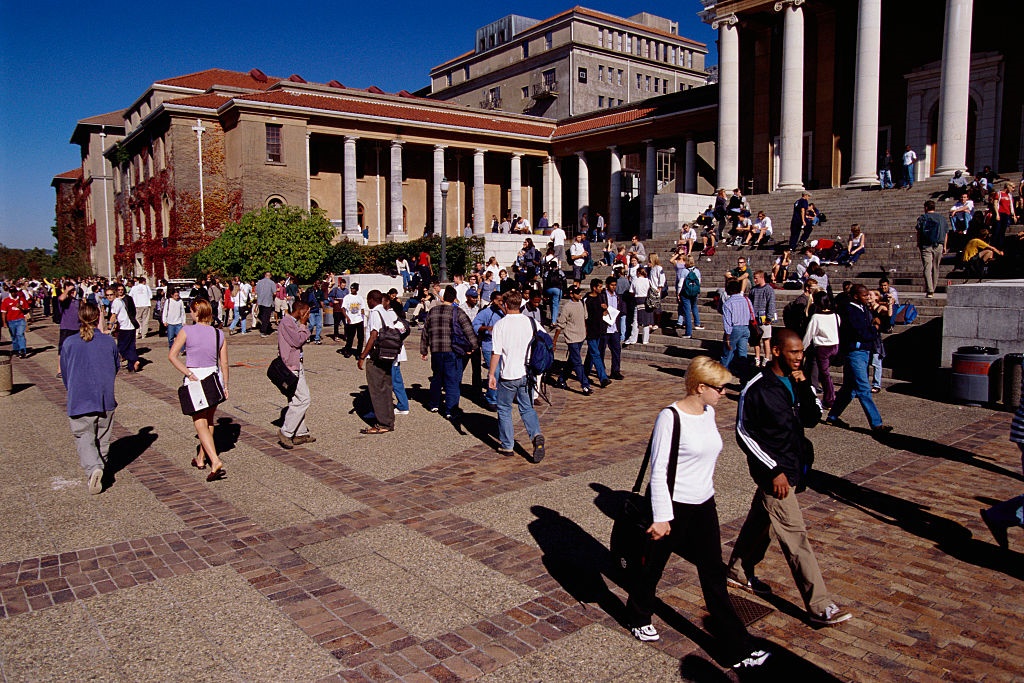


Students at the University of Cape Town. (Getty Images)
- UCT‘s executive has distanced itself from a research paper by one of its professors, calling the paper “offensive to black students“.
- The paper, published at the end of May, questions why black South African students are less likely to consider studying biological sciences.
- The paper said “experience with pets” and “attitudes towards wildlife” as well as the Fallist movement, among others, may have played a role in black students‘willingness to study biological sciences.
The University of Cape Town (UCT) executive has distanced itself on Friday from a research paper by one of its professors which asks why black students are less likely to study biological sciences, calling the paper “offensive to black students” at the university.
The paper by Professor Nicoli Nattrass, based at the university’s Institute for Communities and Wildlife in Africa (iCWild), titled “Why are black South African students less likely to consider studying biological sciences”, was published in the South African Journal of Science at the end of May.
The two-page paper speculated inequalities in schooling, “materialistic values” around occupation and income, “experience with pets” and “attitudes towards wildlife” – “shaped by a student’s socio-economic background” – played a role in black students’ willingness to study biological sciences.
READ | Claims of racism at Wits over ‘falsified marks’
“Given the ‘Fallist’ protests of 2015/2016, another possibility is that wildlife conservation itself might be regarded as colonial, and students might perceive a trade-off between social justice and conservation,” the paper’s introduction read.
Questions in the paper asked 211 students in an “opportunistic survey”, 54% of which were black, include “agrees addressing social inequality is more important than wildlife conservation”; “agrees that humans evolved from apes”, and “agrees that many of South Africa’s national parks should be scrapped and the land given to the poor”.
‘Unexamined assumptions’
In a statement, UCT’s executive said it had launched an investigation into the matter, and was concerned the paper had “methodological and conceptual flaws” that raised questions about the standard and ethics of research at the university.
“The paper is offensive to black students at UCT, black people in general and to any academic who understands that the quality of research is inextricably linked to its ethical grounding,” its executive said.
“The paper is constructed on unexamined assumptions about what black people think, feel, aspire to and are capable of.”
The paper offered an example of research that was “unable to examine the historical and ideological roots of academic disciplines.”
It also said the researcher was equally unaware of the role “power differentials have in closing or opening possibilities and choices in the life of individuals and communities”.
READ | UCT dinner for people of colour: organisers remain unapologetic
The university executive said it welcomed rigorous and respectful debate on all issues around transformation, and endorsed the right of a critical review of the paper.
It added it viewed the paper as an opportunity to “renew its resolve” to foster a university culture that aligned with its values, and was “sensitive, inclusive and free of racial prejudices”.
“We affirm our commitment to dealing with any instances of racism, sexism, discrimination of any sort or any unethical behaviour,” the university executive said.

